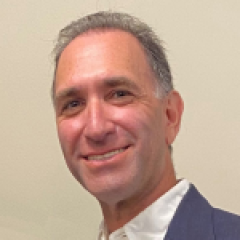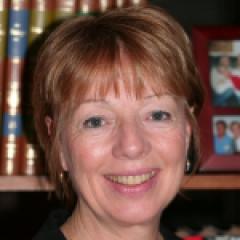Members of the Fannie Lou Hamer Freedom High School (Used with permission)
Here is the fourth in a series of profiles about the winners of a pilot project called Schools of Opportunity, which is highlighting schools that are creating healthy environments for students, teachers and staff. Seventeen schools were named as inaugural winners in initiative to identify and recognize public high schools that seek to close opportunity gaps through practices “that build on students’ strengths” — not by inundating them with tests. (You can see the list here.)
Each high school recognized as 2015 Schools of Opportunity has supported and challenged its students — many of them at-risk — and its teachers, but each story is unique. The first story featured how Colorado’s Centaurus High School fosters a healthay climate for students and teachers. The second profile looked at how one majority-minority school on Long Island, Malverne High School, fosters a college-going culture and builds academic and social-emotional supports around students who need them. The third profile looked at Colorado’s Jefferson County Open School, which has refused to conform to standardization. This new profile looks at a school that refuses to allow student learning to be driven by high-stakes tests and that attends to the health of the minds of students as well as their physical health.
The Schools of Opportunity project is the work of Carol Burris, principal of South Side High School in the Rockville Centre School District in New York, and Kevin Welner, a professor at the University of Colorado Boulder’s School of Education who specializes in educational policy and law. Burris was named the 2010 Educator of the Year by the School Administrators Association of New York State, and in 2013, was named New York State High School Principal of the Year. She is taking early retirement at the end of the school year to advocate for public education. Welner is director of the National Education Policy Center at UC Boulder, which produces high-quality peer-reviewed research to inform education policy discussions.You can visit the project’s website at opportunitygap.org. Here is the fourth profile of a winning school.
Fannie Lou Hamer Freedom High School
Principal: Jeff Palladino
Bronx, New York
Enrollment: 487
Economically disadvantaged students: 93.9%
By Kevin Welner and Carol Burris
Fannie Lou Hamer Freedom High School, located in the poorest congressional district in the United States, refuses to allow its students’ learning to be driven by high-stakes testing. It has chosen another path: engaging students in real world learning, combined with meaningful, relevant assessment of their work. Fannie Lou is a member of the New York Performance Standards Consortium. Therefore Fannie Lou students are exempt from having to pass four of the five state graduation exams; instead, they show what they know in authentic ways, through portfolios and exhibitions.
Fannie Lou nurtures students’ abilities to connect, to question, to innovate, and to communicate. Students, the school believes, learn best by investigating real-world issues in ways that require collaboration, personal responsibility, care for others, and a tolerance for uncertainty. Students investigate personally meaningful problems and are assessed using a performance-based system that ensures rigorous student inquiry. They create benchmark portfolios in each of their first three semesters. At the end of their fourth semester, they undertake a critical performance task of presenting evidence of their mastery of learning in front a group of teachers.
Science teacher Molly Shabica is proud of the hands-on, problem-based curriculum of the school and gives this example. “The science curriculum and the exhibitions required for each science class utilize the community through the Bronx River. Hands-on labs and independent inquiry work guide the content needed to further student literacy in science. Using technology, students transform the traditional lab report into a video that demonstrates their understanding.”
In their eleventh- and twelfth-grade years, students create a mastery portfolio that is composed of seven pieces: literature, autobiography, history, social issues, math, science, and art. Portfolios exhibit student work on time-intensive, in-depth, performance-based tasks and on classroom projects aligned to key learning targets. Fannie Lou Hamer Freedom students are assessed according to the rubrics of the New York Performance Standards Consortium.
Ann Cook, one of the leaders of the consortium, said about the school:
“Fannie Lou is one of those rare ‘defy the odds’ schools that allow kids to show what they know and can do through an innovative system of performance-based assessments. It is an important model for other schools working with kids in the most challenging communities of our city.”
The high school uses technology to support its authentic assessment of student learning. Through their partnerships with NYC Izone, Digital Ready and Apple Computers, the school leverages technology to allow students to pursue mastery. The school was named one of only six New York City Schools to be designated as an Apple Distinguished Program, which allows Apple Computers to bring innovative educators from across the country to see the school’s technological practices.
As school principal, Jeff Palladino, explained:
“Using iPads to teach literacy to create asynchronous classrooms so students can read different books at their own pace and work on student-teacher decided literacy goals has assisted us in giving students ownership over their reading. Transitioning from paper portfolios to digital portfolios has been very beneficial to students, families and staff. Students are now able to have a collection of their best work throughout their four years of high school in one digital site. Students and families can access this work at any time; it is a powerful archive of student learning and achievement.”
Members of the staff at Fannie Lou attend not only to the health of the mind of students, but also to their physical health. Through a comprehensive partnership with Children’s Aid Society (CAS), the school offers access to quality medical and dental services. CAS provides the school with a full-time medical and dental advocate (who is also a graduate of the high school). The advocate establishes relationships with healthcare providers, students, their families, and school staff. She also supports parents and guardians in navigating the complexities of the healthcare system and serves as a resource for a community that is usually under-resourced and underserved.
This relationship with CAS also provides an adolescent pregnancy prevention program and a sexual education program for all students. Through an additional partnership with CAS and Helen Keller International’s ChildSight Program, the entire student body receives no-cost vision screenings and no-cost eyeglasses. During the 2014-15 school year, over 200 students received free eyeglasses from this partnership. As a school counselor, Marybeth Kachnic, notes:
“Our families are suffering from the ravages of poverty, unemployment and homelessness. Students cannot focus on learning when their basic needs are not met. Partnering with Children’s Aid Society brings support to families at the school level. Families can request assistance with back rent and eviction prevention, clothing, shoes, food, public benefits, housing and legal issues, mental health as well as medical and dental assistance. Children’s Aid also provides funding for college counseling and tutoring. The cohesion that a community school provides creates a family like atmosphere for our students. I believe that our success as a school comes from students knowing that we are supporting them as a whole person, as a member of a family and as a community.”
For all of these reasons and more, Fannie Lou Hamer Freedom High School shows how to close the gaps in learning opportunity for students in a community school setting.
(Correcting name of “Helen Keller International’s ChildSight Program)



